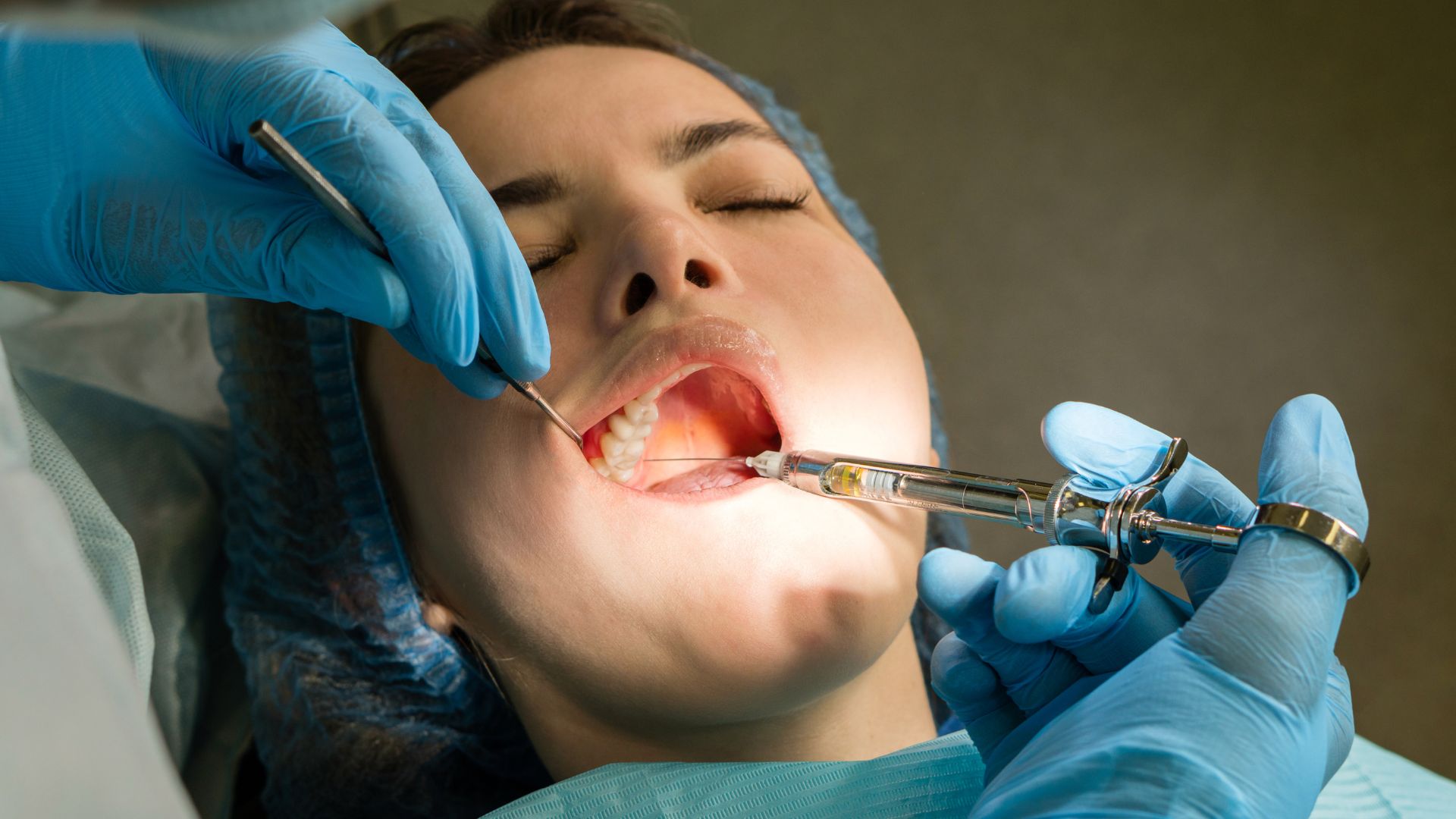Have you ever had a toothache so bad that you couldn’t think straight? Did your dentist mention “teeth surgery” and leave you picturing hospital beds and long recoveries? That’s understandable. The idea sounds intense, but most dental surgeries are straightforward and often the best way to fix ongoing pain or prevent bigger problems.
Whether it’s a wisdom tooth acting up or a gum issue that won’t heal, understanding what’s involved can make the whole process feel less overwhelming. This guide explains the different types of dental surgeries, how much they cost in India, what recovery is like, and the risks involved.
What Is Teeth Surgery?
Teeth (or dental) surgery is any treatment that fixes problems inside your mouth by working on teeth, gums, or jawbone. It can be as simple as removing a loose tooth or as detailed as placing an implant in the bone. Some surgeries finish in minutes with local anesthesia; others need extra time and planning.
“Dental surgeries in India have become increasingly advanced and safer thanks to modern imaging and minimally invasive techniques.” — Indian Dental Association.
Types of Teeth Surgery
When your dentist suggests surgery, it helps to know exactly what type of procedure they’re talking about. Every kind of dental surgery is done for a specific reason, and the method, healing time, and cost can vary. Here’s a detailed look at the most common types:
Simple and Surgical Tooth Extraction
A simple extraction is used for visible and loose teeth. It’s quick, done under local anesthesia, and heals in a few days. A surgical extraction is needed when a tooth is broken, decayed below the gum, or impacted. It may involve cutting the gum or bone and might require stitches. Recovery is slightly longer but manageable.
Wisdom Tooth Removal
Wisdom teeth often lack enough space to come in properly, which can cause pain, swelling, or infection. If they’re impacted or growing at an angle, dentists remove them surgically. The procedure involves cutting the gum and removing bone. Recovery usually takes a week, with mild swelling or discomfort in the first few days.
Gum Surgery
Gum surgery is done to treat severe gum infections that don’t respond to regular cleaning. The dentist lifts the gums, cleans under them, and stitches them back in place. This is known as flap surgery. In some cases, bone grafts or regeneration may be added. Healing usually takes one to two weeks, and follow-ups may be needed.
Apicoectomy (Root-End Surgery)
If a root canal doesn’t entirely remove an infection, an apicoectomy may be needed. It involves removing the tip of the infected root through a small cut in the gum and sealing the area. It’s a minor surgery that helps save the tooth. Most patients recover in a few days with proper rest and medication.
Dental Implant Surgery
Dental implants replace missing teeth with artificial roots placed in the jawbone. A metal post is inserted, and after a few months of healing, a crown is added on top. The procedure is done in stages and requires good bone health. Implants look natural, last long, and help maintain jaw structure if cared for properly.
“Healing typically takes 7–10 days for most procedures, but some gum surgeries may require follow-up care for full recovery.”
Each type of surgery has a purpose and plays a vital role in keeping your mouth healthy. Your dentist will guide you based on your symptoms, X-rays, and overall oral health condition. Always follow their advice and ask questions if you’re unsure about the procedure being recommended.
What to Expect During the Procedure
Before any dental surgery, your dentist will conduct an examination and may take X-rays to understand the condition. You might also be asked about your medical history and any medications you’re taking.
Depending on the type of surgery, the dentist will use either local anesthesia (which numbs the area) or, in some cases, general anesthesia (which puts you to sleep).
Most procedures are completed within 30 to 90 minutes. Afterward, you’ll be given post-operative instructions, pain relief medications, and a follow-up appointment if needed.
“This information is for educational purposes only and does not replace professional medical advice. Always consult your dentist for personal evaluation.”
Recovery After Teeth Surgery
Recovery depends on the type of procedure and your overall health. For most patients, the first 24–48 hours are the most sensitive. During this time, it’s essential to rest, eat soft foods, and follow the care instructions.
Common post-surgery symptoms include:
- Mild bleeding for a few hours
- Swelling near the surgery site
- Limited jaw movement
- Discomfort while chewing
These usually go away in a few days. Good oral hygiene and avoiding smoking or alcohol can speed up the healing process.
Cost of Teeth Surgery in India
Dental surgery costs vary depending on the type of procedure, your location, the dentist’s expertise, and any additional diagnostics, such as X-rays or blood tests
“Costs can vary significantly depending on complexity, dentist expertise, and use of sedation. Always discuss charges in advance with a licensed dental clinic.” — DCI Advisory Note.
Common Types of Teeth Surgeries and Cost Range in India
| Type of Surgery | Description | Average Cost (INR) |
| Simple Extraction | Removing a visible, loose tooth | ₹500 – ₹2,000 |
| Surgical Extraction | For broken or impacted teeth | ₹2,000 – ₹5,000 |
| Wisdom Tooth Removal | Often involves surgery | ₹3,000 – ₹10,000+ |
| Gum Surgery | For gum disease | ₹5,000 – ₹15,000 |
| Apicoectomy | Root-end infection removal | ₹4,000 – ₹8,000 |
Always ask for a full cost breakdown during your consultation so there are no surprises later.
Are There Any Risks?
Most dental surgeries are safe when done by qualified professionals. However, like any medical procedure, there are potential risks.
These may include:
- Bleeding or infection
- Dry socket (after tooth extraction)
- Nerve damage (in rare cases)
- Slow healing in smokers or diabetic patients
“All surgical procedures carry some risks. Your dentist will guide you based on your health profile.”
Frequently Asked Questions
Is teeth surgery painful?
Because of local anesthesia, you won’t feel pain during surgery. Afterward, mild soreness or swelling is normal and can be controlled with medicines and cold compresses.
How long does recovery take after dental surgery?
Most patients heal in 7–10 days. Complex operations, like multi-root extractions or gum grafts, may take up to two weeks. Following your dentist’s advice speeds healing.
What should I eat after dental surgery?
Stick to lukewarm, soft foods—curd, dal khichdi, scrambled eggs, smoothies. Avoid crunchy, spicy, or very hot meals that can disturb the surgical site.
When should I see a dentist after surgery?
Go for the scheduled review in about a week. Visit sooner if you notice heavy bleeding, rising pain, fever, or sour taste that doesn’t improve.
Are there any long-term side effects of teeth surgery?
Long-term problems are uncommon. A small number of people may feel temporary numbness or slight sensitivity that usually fades as nerves heal.
Is dental surgery covered by insurance in India?
Coverage depends on your policy. Medically necessary procedures (like infection control) are sometimes included, while cosmetic choices often are not. Check with your insurer.
Final Thoughts
Needing teeth surgery might feel stressful at first, but with the proper care and information, it becomes a manageable and often necessary step toward better oral health. From tooth extractions to gum treatments, modern dentistry ensures these procedures are done safely and with minimal discomfort.
At Family Dental Clinic in Mira Road, we’re here to guide you through every stage—with honest advice, gentle care, and treatment plans tailored just for you. If you’re considering dental surgery or have questions about your options, we’re ready to help. Let’s take the next step together—your smile is worth it.








